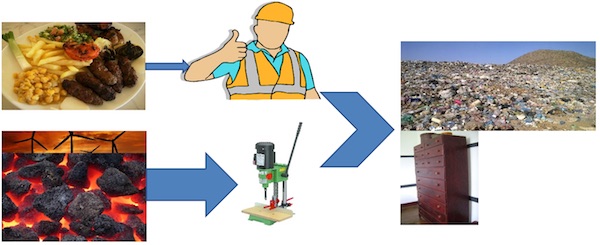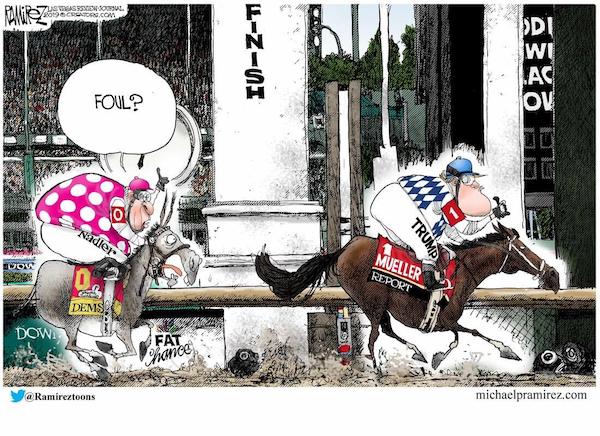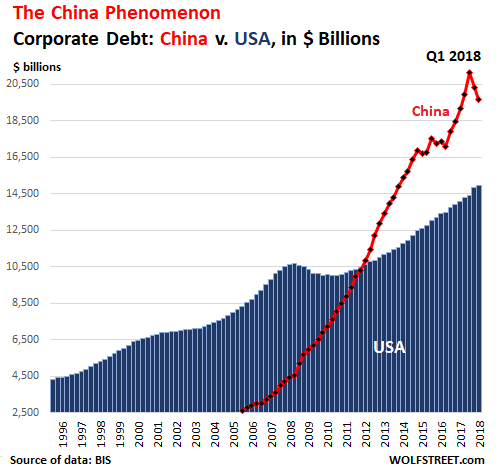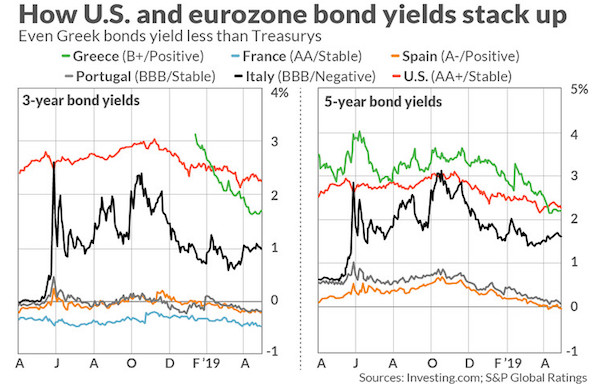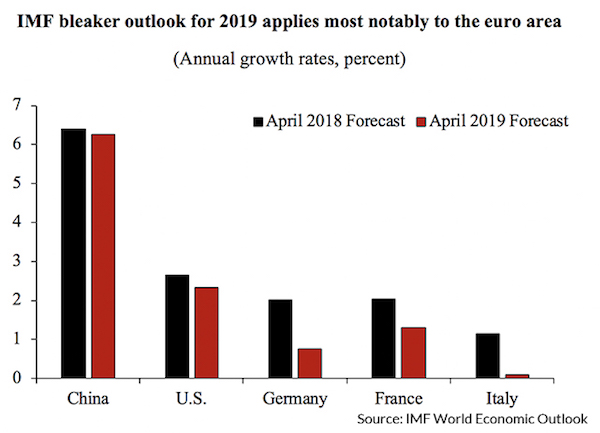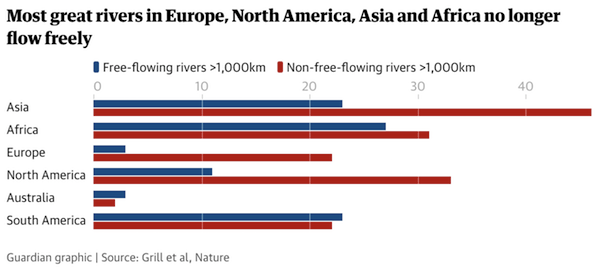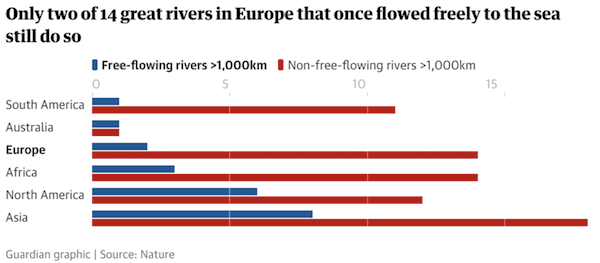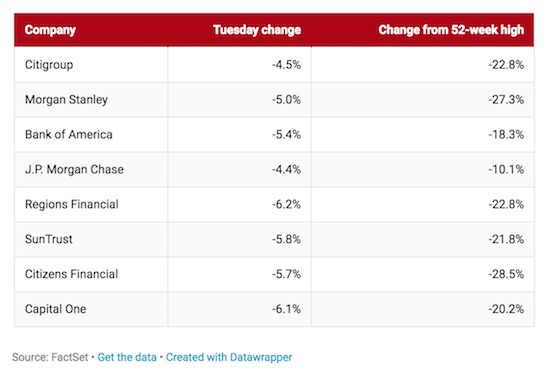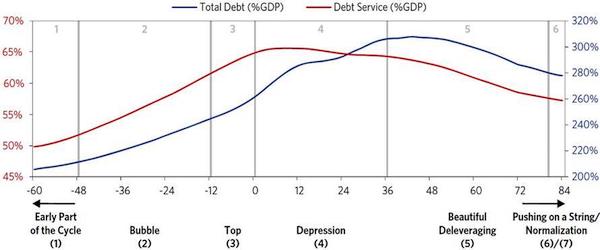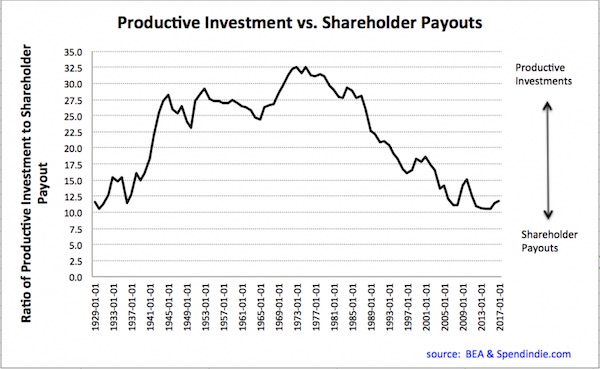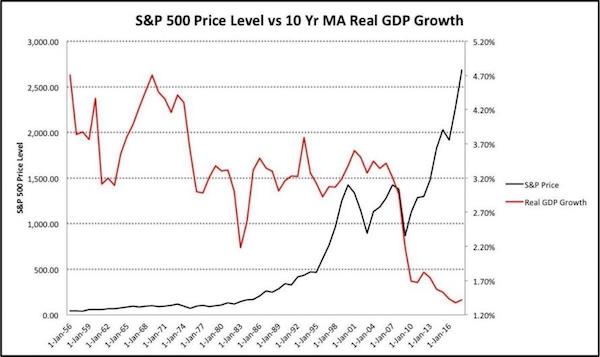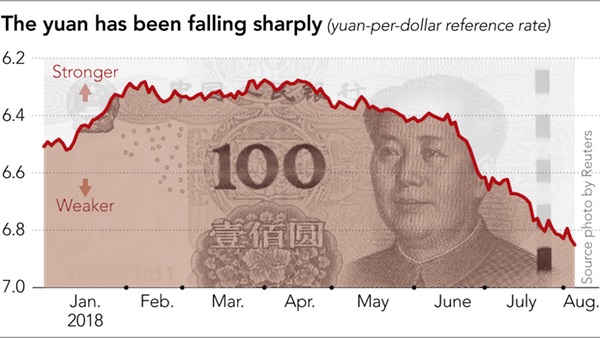
Jackson Pollock Male and female 1942

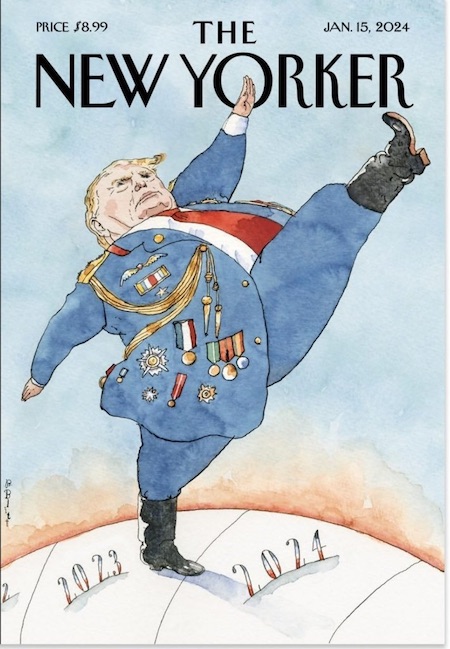

Greenwald
Glenn Greenwald gets to the nub of everything at the ZeroHedge debate. pic.twitter.com/HtYJH0xEky
— Turncoat Don (@TurncoatD) January 8, 2024

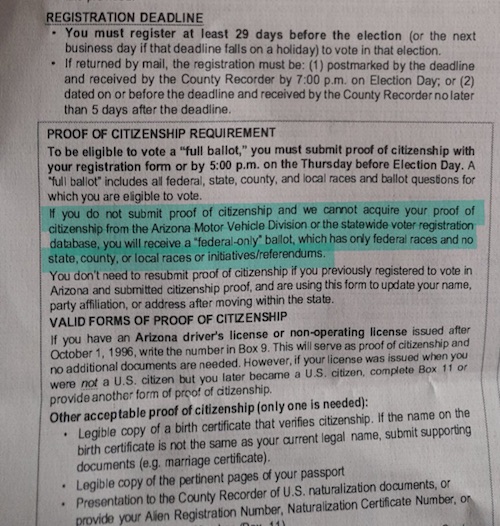
Elon Musk: “Arizona clearly states that no proof of citizenship is required for federal elections.”

Rogan 1965
It’s not easy to shock Joe Rogan but that’s exactly what happened when they played this eerily accurate prediction from 1965 on how to destroy the fabric of society.
It’s all been planned. pic.twitter.com/a3oGz1mpb8
— illuminatibot (@iluminatibot) January 9, 2024

Rickards



Scott Ritter

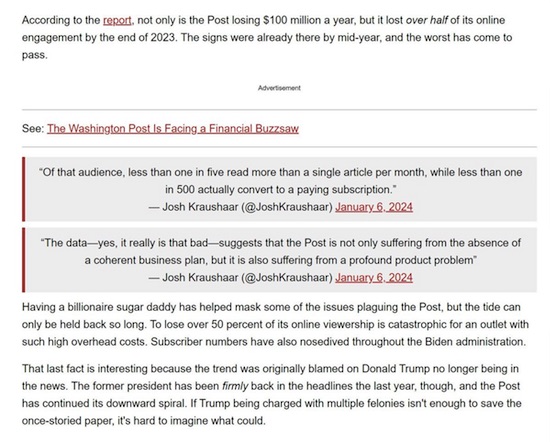


“..unanimously oppose holding Hunter Biden in contempt of Congress despite his flagrant violation of a subpoena to appear for a standard closed deposition…”
• Why Democrats Need to Re-Think Hunter’s Contempt (Turley)
This week, the Republican-controlled House will begin contempt proceedings against Hunter Biden with a vote expected as early as this week. That alone will be an historic moment for Congress to declare that the son of a sitting president may have committed a federal felony. However, the costs may not be borne by Hunter alone. If the Democratic members, as expected, unanimously oppose the contempt sanction, the party could fundamentally undermine its position in future investigations. The Democratic leadership has made a series of similar decisions in the last decade that have cost the party dearly by opting for immediate political benefits over long-term interests. They are acting as the political version of short sellers who have given away institutional positions, only to find later that the costs were prohibitive.
That was the case when Democrats repeatedly undermined the Senate filibuster. Many of us warned Democratic senators that they would rue the day that they killed the rule. Nevertheless, in 2013, Democrats pushed through a rule change allowing most presidential nominees (but not Supreme Court nominees) to be confirmed by a simple majority vote. Then in 2017, when Republicans controlled the Senate, they extended the simple-majority rule change to justices, too — and when Democrats wanted the filibuster to block the High Court nominations of Neil Gorsuch, Brett Kavanaugh or Amy Coney Barrett during the Trump administration, it was gone. Likewise, when Democrats first sought to impeach President Donald Trump, they held only one hearing in the House Judiciary Committee and discarded the development of the type of evidentiary record used in past impeachments.
I warned that the record guaranteed an easy acquittal in the Senate and undermined the process of impeachment. They ignored such warnings and quickly impeached, then lost the case in the Senate. In a second impeachment, they went even further, using what I called a “snap impeachment” with no hearing of any kind. Now, after using the first snap impeachment in history, Democrats are implausibly arguing that House Republicans have failed to support impeachment efforts against President Joe Biden and objected to the lack of hearings with particular witnesses. They also have encouraged President Biden to act unilaterally in a host of areas, including his attempt to give away a half-trillion dollars in student loan debts.
When House Speaker Kevin McCarthy (R-Calif.) was targeted for removal by a handful of GOP members, many people urged Democrats not to support such a dysfunctional movewhen the nation had serious problems to address. Yet Democrats voted with the rebellious Republicans to oust McCarthy, and the whole effort caused weeks of disruption. It shattered a certain detente in such motions to vacate— and Republicans are very likely to return the favor during any future revolt against a Democratic speaker. The political culture of short selling is nowhere more evident than in the “ballot-cleansing” efforts of Democratic officials and activists to remove Trump’s name from 2024 ballots as well as to remove primary opponents against Biden.
The immediate satisfaction of blocking potential voters ignores the long-term costs of this distinctly anti-democratic measure. When presented with those implications, anti-Trump pundits often express anger. MSNBC host Joe Scarborough, for example, called such concerns “laughable” and told critics to “spare me the anti-democratic lectures.” Now, Democrats are about to do another short sell. They are expected to unanimously oppose holding Hunter Biden in contempt of Congress despite his flagrant violation of a subpoena to appear for a standard closed deposition. It is the very same demand made by Democrats in prior congresses, before witnesses subsequently appeared for public hearings on controversies like the Jan. 6, 2021, Capitol riot.

“.. the 14th Amendment provision has been used so sparingly in American history that the U.S. Supreme Court has never ruled on it.”
• Trump Warns of ‘Big Trouble’ if Supreme Court Rules Against Ballot Access (ET)
Former President Donald Trump warned there would be “big trouble” if the U.S. Supreme Court issued an unfavorable ruling in cases where he is denied access to states’ ballots. The nation’s high court on Jan. 5 agreed to hear a case that stemmed from the Colorado Supreme Court’s earlier ruling that barred President Trump from appearing on the ballot in the state. The judges wrote that he should be blocked due to their interpretation of the Constitution’s 14th Amendment’s Section 3, which prohibits candidates who engaged in an “insurrection or rebellion” from running for office. During a rally on Jan. 5, the former president told a rally in Iowa that he hopes “we get fair treatment because if we don’t, our country’s in big, big trouble. Does everybody understand what I’m saying?”
In their appeal to the high court, his lawyers argued that Colorado’s voters have been disenfranchised under the state Supreme Court’s ruling in December. “The Colorado Supreme Court decision would unconstitutionally disenfranchise millions of voters in Colorado and likely be used as a template to disenfranchise tens of millions of voters nationwide,” the lawyers wrote in their appeal.Aside from Colorado, Maine Secretary of State Shenna Bellows unilaterally ruled to block the former president from the ballot, prompting an appeal to the Supreme Court. And like in Colorado, Ms. Bellows argued that he should be barred from appearing on primary and general election ballots because of the 14th Amendment’s clause. The appeal to the Supreme Court came one day after the president’s legal team filed an appeal against the ruling from Ms. Bellows that Trump was ineligible to appear on that state’s ballot over his role in the Capitol breach.
Both the Colorado Supreme Court and the Maine secretary of state’s rulings are on hold until the appeals play out. Late last week, the former president’s attorney and spokeswoman, Alina Habba, said she believes the Supreme Court will “step up” to reject the ballot decisions because they are “pro-law” and “pro-fairness.” “I think it should be a slam dunk in the Supreme Court. I have faith in them,” Ms. Habba told Fox News’ Sean Hannity. “You know, people like Kavanaugh, who the president fought for, who the president went through how to get into place, he’ll step up.” The Trump appeals to the U.S. Supreme Court also follows one from Colorado’s Republican Party. Other legal observers expect the high court will take the case because it concerns unsettled constitutional issues that go to the heart of how the country is governed. At the same time, the 14th Amendment provision has been used so sparingly in American history that the U.S. Supreme Court has never ruled on it.

X thread.
Nathan Wade billed the taxpayer for his “coordinating” talks with the White House.
• Biden White House Coordinates Fani Willis Indictment of Donald Trump (Kanekoa)
Yesterday, in a shocking revelation, @MarcoPolo501c3 uncovered a significant connection between Nathan Wade, Fani Willis’ lead prosecutor, and the Biden White House. Fani Willis’ lead prosecutor held meetings with Biden’s White House Counsel on May 23 and Nov. 18, 2022, before indicting Donald Trump, Biden’s leading presidential opponent. Remember when Fani Willis prematurely leaked Trump’s indictment before announcing it at a late-night press conference at 11:37 pm? Newt Gingrich told @charliekirk11 that someone from DC called Fani Willis and demanded she indict Trump that Monday night, Aug. 14, 2023, to divert attention away from the Weiss “screw up.” That Weiss “screw up” originated on July 19, 2023, when IRS whistleblowers testified before Congress about DOJ and Weiss blocking investigators from filing felony charges against Hunter Biden, tipping off Hunter about search warrants, preventing witness interviews, and restricting any investigation into President Joe Biden.
https://twitter.com/i/status/1744847101362896973
Senator Chuck Grassley later released an FBI FD-1023 form detailing a $10 million bribery scheme involving VP Joe Biden and Hunter Biden. One week later, Judge Noreika dismantled Weiss’s unprecedented sweetheart immunity deal for Hunter, questioning why the DOJ granted full-scale immunity to Hunter Biden for unrelated crimes. In the following weeks, the House Oversight Committee released bank records showing payments to the Bidens from Russia, Kazakhstan, and Ukraine. Rep. James Comer disclosed over 170 suspicious activity reports submitted by six banks to the Treasury Department, implicating the Biden family in money laundering, human trafficking, and tax fraud. Devon Archer, Hunter Biden’s business partner, claimed President Joe Biden was involved in over twenty calls regarding his son’s foreign business dealings. Leading up to Friday, Aug. 11, 2023, when Garland appointed Weiss as Special Counsel despite prior false statements to Congress that Weiss already had the authority to file charges against Hunter, further exposing the DOJ’s corruption.
Garland appointed Weiss after he was the attorney who approved Hunter Biden’s unprecedented sweetheart deal, and IRS whistleblowers testified before Congress that Weiss had obstructed the investigation into the Bidens for the last five years. This would explain why Fani Willis leaked the indictment prematurely on Monday, Aug. 14, 2023, before holding a press conference at a quarter to midnight, shifting the media’s focus away from the DOJ protecting Biden to Fani Willis indicting Trump. As revealed in yesterday’s court filings, Nathan Wade, Fani Willis’ lead prosecutor, held meetings with Biden White House Counsel at the beginning and near the end of her grand jury, strategically coordinating Biden’s prosecution of Donald Trump.
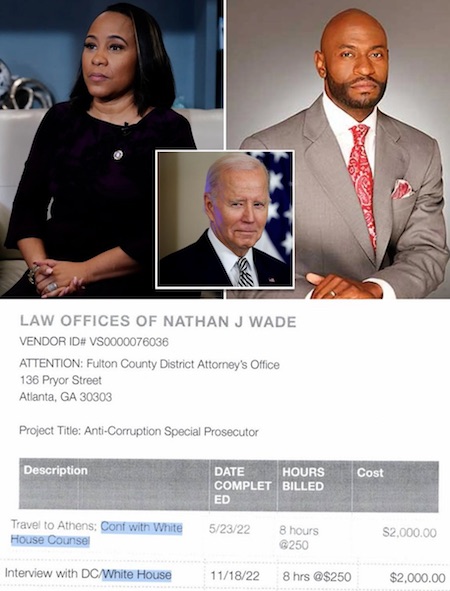

Watters Fani
Fani Willis hired a personal injury attorney without prior prosecution experience and paid him over half a million dollars.
Subsequently, they reportedly went on vacation to Napa and embarked on a Caribbean cruise.
This prosecutor itemized 16 hours of meetings with the Biden… pic.twitter.com/hBkZNq0Yfy
— KanekoaTheGreat (@KanekoaTheGreat) January 10, 2024

“..We need a reckoning, a serious and massive foundational reset, the likes of which we have never seen in our nation’s history..”
• Judge James Boasberg Gives Ray Epps Probation (CTH)
James Wolfe was the Senate Intelligence Committee Security Director who leaked the top-secret Title-1 search warrant FISA application to journalist Ali Watkins on March 17, 2017. When Wolfe was busted by the FBI his lawyers threatened to introduce evidence in court that he was instructed to do so by SSCI Vice-Chairman Senator Mark Warner. The DOJ dropped the classified document leak charge, and instead charged him only with lying to investigators. Wolfe received probation. In March, 2023, when I wrote the outline about Judge Boasberg being the corrupt DC judge who broke the constitutional restrictions on executive privilege, which technically forced Mike Pence to turn over his notes and testify to James Smith and the DC grand jury, I said at the time, “The entire judicial system is corrupt, soup to nuts, all of it.” I was not using hyperbole.
This is the same Judge Boasberg who sat as presiding judge on the FISA court. The same Judge Boasberg who gave FBI lawyer Kevin Clinesmith a slap on the wrist for manufacturing evidence used in the Carter Page FISA application that defrauded the court. The same Judge Boasberg who appointed former DOJ-NSD head Mary McCord as amicus curiae advisor to the court, after she knowingly and fraudulently submitted the FISA application to the court. Today, Judge Boasberg gave J6 FBI agent provocateur Ray Epps a sentence of probation.
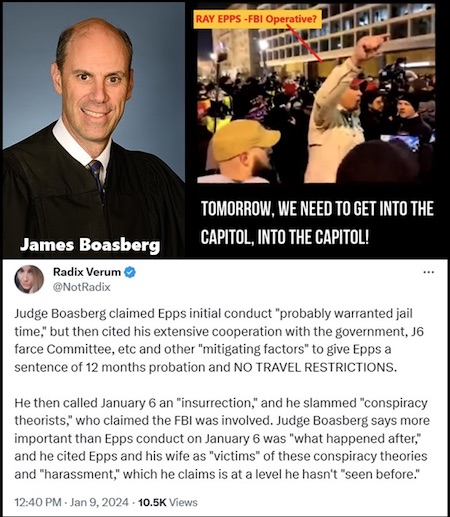
Judge James Boasberg is not just openly and visibly aligned with the most corrupt activity within Washington DC, this is a federal judge who is laughing at the inability of anyone within the system to do a damned thing about it. We need a reckoning, a serious and massive foundational reset, the likes of which we have never seen in our nation’s history. Pray thankfulness. Pray for wisdom. Pray for resolve. Pray for strength. …. Then prepare!
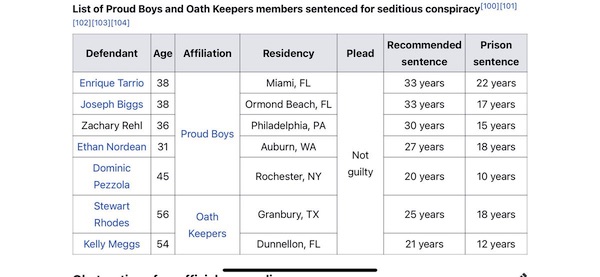

X thread.
Elon Musk: “Incentives matter. They are importing voters.”
In 2007, Senator Joe Biden declared that no great nation has uncontrolled borders, warning that America must build a border fence and increase border agents to secure the nation against drugs, terror, and illegal immigration. Biden accused wealthy Republicans of wanting to increase illegal immigration to replace American workers with cheaper labor. “The reason the employers want this extra influx is it drives cost down… Employers have to be held responsible for the unscrupulous practice of bringing people here in order to keep wages down.” “That’s not fair to Americans. You have to hold employers responsible for hiring Americans First.”
Criticizing President Bush, Biden lamented the lack of border agents, the absence of a border fence, and the free flow of drugs into the country. “I’ve been arguing for the need to put more protection at our borders, meaning you have more border guards.” “You have to have a significant increase of security at the border, including limited elements where you actually have a fence.” “People can go over and under a fence, but you can’t take 100 kilos of cocaine over and under a fence.” Fast forward to President Biden’s term, and a record-breaking 8 million people have illegally entered the country in 3 years, with a fentanyl crisis leading to over 106,000 Americans overdosing on drugs last year.
On Biden’s inaugural day, he introduced policies that incentivize illegal immigration: • Paused Deportations • Suspended “Remain in Mexico” • Stopped Border Wall Construction. The consequences are dire – a national security crisis draining American taxpayers of hundreds of billions annually, leading major cities to slash budgets for essential services such as fire, police, sanitation, and education. As Senator Biden once warned, “No great nation can be in a position where they can’t control their borders.” “It matters how you control your borders. Not just for immigration, but it matters for drugs, terror, and a whole range of other things.”
https://twitter.com/i/status/1744482029641793883

“Trump is going to be the winter coat. I think he can make it less bad. If this continues the way it is, then we are going downhill very fast. I think Trump is coming back.”
• Trump is the Winter Coat – Charles Nenner (USAW)
Renowned geopolitical and financial cycle expert Charles Nenner has been warning of a huge war cycle that happens every 120 years or so. With Tiawan/China and Russia/Ukraine and Israel and the Middle East conflicts, we are clearly in this huge war cycle. Nenner also says we are simultaneously entering a huge financial down cycle that could easily turn into the Greatest Depression–ever. Neither of these cycles can be stopped. Nenner explains, “The problem is everywhere. You may remember we said 10 years ago that the biggest problem for the United States is going to be internal. There is a huge problem. Nobody knows what to do anymore, and people are afraid to speak up. . . . History says if you are not allowed to say certain things, then you stop thinking certain things. This is what is written in the book ‘1984.’ . . . .
So, this is the end of what is going on in the United States. I think America is lost, but it is not a surprise. The Dutch ruled for 250 years, and then the Spanish, Portuguese came, and then the English came. Every big society ends, more or less, after 250 years, and now it’s the United States. . . . People are talking about new systems. They think Marxism is good, but it did not work because the people who did it before made mistakes. If you don’t wake up, this is what you are going to get, and that is a communist Marxist situation.” So, is there nothing that can be done to save America? Nenner says, “The cycle is turning down, and people ask is there anything you can do? You cannot do anything about it. The question is what can you do? You have summer and then you have winter . . . if you know winter comes after summer, you can buy a coat. I have predicted all these war situations, and out of the blue they are here. There is nothing you can do about it.”
Where does Donald Trump fit in? Nenner says, “Trump is going to be the winter coat. I think he can make it less bad. If this continues the way it is, then we are going downhill very fast. I think Trump is coming back.” Nenner says interest rates are not going down until summer. He likes gold longer term, but it has not bottomed yet. The stock market is in for at least a 30% fall in the next few months, and the country will fall into a deep recession after the halfway point in 2024. Yes, it could turn into the greatest depression ever because there is astronomical debt. Nenner thinks the wild card is a multifront war that has already started. Be warned as Nenner thinks it can spin out of control at any time. War gets much worse before it gets better. Nenner also is warning about a huge wave of terrorism coming to America with the wide-open southern border.

“..the purveyors of ‘winning’ hug themselves in sheer glee as their ‘flipped’ delusions are relayed through a compliant MSM..”
• Something Lost, Never to Be Found Again (Alastair Crooke)
So the narrative ‘factory’ is put hard to work. The kinetic war in Ukraine is settled in an evident and overwhelming Russian victory – albeit without it yet being ‘over’. Of course not: Ukraine was but one single battlescape in the wider struggle to force the ‘Rimland’ (the Atlanticist world) to accept an agreed upon frontier between it and the ‘Heartland’ (Russia, China and their Asian depth), and gracefully to renounce its claim to exceptionality in determining our global future. The MSM media therefore is abuzz with analysis of how to define a ‘western win’: Is it possible to ‘flip’ the narrative of Ukraine, they ponder, to being ‘another’ western win? They want to continue to feed Ukraine into the grinder – to persist in the fantasy of ‘total win’: “There is no other way than a total win – and to get rid of Putin … We have to take all risks for that. No compromise is possible, no compromise”.
Call the Ukraine conflict a ‘stalemate’, and insist that it represents a ‘defeat’ for Putin and a ‘win’ for Biden, since Russia was unable to seize the whole of Ukraine (falsely imputing this to have been Moscow’s objective, from the start). This approach is thought rather ‘cool’ by western analysts: Frame the narrative of a ‘win’ and ensure that from top-to-bottom of society, all adhere to the correct narrative without demur. But this is little more than a simple projection from the YouTube ‘influencer’ culture, by which random individuals earn ‘street cred’, (and lots of cash), by curating slick narratives – whether about fashion, or political events. It may work insofar as the addled western public is concerned, but it has limited traction beyond western cultural tinselry.
The flaw when ‘flip-narratives’ are weaponised geo-politically, however, is that propaganda which is so divorced from a reality that is evident simply is not a winning narrative (except in the most fleeting of ways). Plainly said, it leads to the self-isolation of its authors. The glee with which evident western ‘reverses’ seemingly can be narratively ‘flipped’ by Intelligence ‘leaks’ propagating rank lies to support a narrative has become a contagion amongst western intelligence services. Yet rather, this ‘deceptive covenant’ is a poisoned chalice. If the West had any remaining sense, it would concentrate more on setting a ‘narrative of western defeat’ in Ukraine, rather than promulgating yet another rotting ‘narrative of victory’ Why so? Because a wise leadership would be preparing its people for defeat.
Unlikely and false stories of glory on the battlefield come back to bite the perpetrators, as (metaphorically) the wounded and dead return to contradict visibly the tale of victory. The West, by contrast, is still fed on stories of western leadership, election, innate qualities and exceptionalism. Put simply, this ‘influencer’ fad signally is failing to help westerners cope with the tectonic shifts occurring across the globe. Its peoples are wholly unprepared for the ‘Winter that is Coming’. Yet, the purveyors of ‘winning’ hug themselves in sheer glee as their ‘flipped’ delusions are relayed through a compliant MSM. Childish propaganda and lying however will only serve to make the new era all the more painful. A ‘narrative of defeat’, told with integrity, by contrast, is one that helps a people to understand how a particular crisis arose and came to afflict them. It should also signal a way forward.

“..Netanyahu’s future may depend on Biden losing reelection later this year, with a second Donald Trump administration likely being more amenable to ethnic cleansing..”
• Netanyahu ‘In Real Trouble,’ IDF Can’t Control Gaza – Analyst (Sp.)
Political analyst Elijah Magnier joined Sputnik’s Political Misfits program Monday to discuss Israeli Prime Minister Benjamin Netanyahu’s declining political fortunes as the country pulls troops from northern Gaza. “Netanyahu is in real trouble today,” said the journalist in a discussion with host John Kiriakou. “First, he is attacked by his coalition in the government… the finance minister [Bezalel] Smotrich and the security minister [Itamar] Ben-Gvir warned him if he stopped the attack on Gaza, saying that they want the [Israeli] settlers to return to Gaza after they were asked to leave in 2005 by Prime Minister Ariel Sharon.” “This objective contradicts with the American announcement that the Palestinians will go nowhere and will remain in Gaza, and any ethnic cleansing is not permitted,” added Magnier, “which means that the coalition and Netanyahu’s government is not going to hold.”
The Biden administration has largely defended Netanyahu’s military operation in Gaza, which has killed 1% of the enclave’s population over the previous months. Both Biden and US Secretary of State Antony Blinken have a long history of strong support for Israel. But, hounded by elements of his party’s base and activists who have dubbed him “Genocide Joe,” Biden has been compelled to offer rhetorical opposition. His administration has criticized far-right members of Netanyahu’s government calling for a population transfer of Palestinians from Gaza. Magnier said Netanyahu’s future may depend on Biden losing reelection later this year, with a second Donald Trump administration likely being more amenable to ethnic cleansing.
“He [Netanyahu] needs to keep going in this war, first to avoid the fall of the coalition and have the war last for as long as possible, waiting in the hope that Donald Trump will come to power,” said the analyst. “Trump will be extremely happy to put pressure on Egypt to open the gate and force an exodus of all the Palestinians and give him the whole of Gaza.” “The only hope for Netanyahu is to disregard what the Biden administration wants,” he concluded. Discussion then shifted towards South Africa’s recent filing of genocide charges against Israel at the International Court of Justice. The South African government delivered an 80-page complaint against Israel last week, documenting various statements from members of the Israeli government expressing support for ethnic cleansing and mass civilian casualties. The charges are set to be heard this week. “Ministers in the Netanyahu government said, ‘We want to kill all the Palestinians, we don’t want anyone in Gaza to remain alive, and we want to force an exodus on them if they don’t leave Gaza,’” recalled Magnier.
“The heritage minister of Benjamin Netanyahu’s government said we need to use nuclear bombs on Gaza. And the other minister said we are going to cut both electricity and food and supply to Gaza and ‘don’t lecture us about human rights.’” “All these represent clear evidence [of genocidal intent],” he said. “Plus all the films and videos that are posted on TikTok and social media by the Israeli army itself inside Gaza showing how they’re blowing up those homes by spreading explosive everywhere. And then another officer saying, ‘Well, I killed two boys of 20 because I didn’t find any children to kill.’ And the snipers killing civilians who were raising white flags and raising their arms in the sky. So all these represent solid proof of crimes against humanity and war crimes that Israel is committing.” “I think many countries would like to see some of the international laws coming back to normality,” Magnier concluded.

Foreign Secretary wouldn’t have been enough for ex-PM Cameron. Instead, he was brought in as War Secretary. And that he liked.
• West Ready To Back Ukraine ‘For Years’ – UK Foreign Secretary (RT)
The US and its allies will not falter in their support for the Ukrainian cause, and Russia should not count on waiting them out, British Foreign Secretary Lord David Cameron told Parliament on Tuesday. Cameron was prime minister between 2010 and 2016. Last November, he was made a baron and appointed Secretary of State for Foreign, Commonwealth and Development Affairs. Tuesday’s appearance before the Foreign Affairs Committee was his first since returning to government. The Ukraine conflict was among the topics that were raised during the questioning. “Our commitment is such that with our allies, we want to demonstrate to [Russian President Vladimir] Putin very clearly that he cannot wait us out, and we are prepared to support Ukraine through 2024, ’25, ’26,” Cameron told the MPs. “We are prepared to give that support because it is the challenge of our generation.”
The Israeli war on Hamas in Gaza is “certainly” taking international attention away from Ukraine, “which I think is a pity,” Cameron said. “I think it’s the job of the strongest supporters of Ukraine – of which I would say Britain is rightly one – to do everything we can to keep it as high up the agenda as possible, to keep the partnership and coalition of countries that back Ukraine as strong and united and as purposeful as possible.” Support for Ukraine is “not an issue of contention in British politics,” as it may be in the US and some other countries, he insisted. While London will continue to back Kiev even if Washington and others are slow to commit, “we really need the Americans to come forward with this package,” Cameron added. He was confident that the US Congress would do so eventually. The White House has asked for over $60 billion to fund Kiev in 2024.
Right now, the UK is working on mobilizing the military-industrial complex to manufacture ammunition and other weapons to meet Ukraine’s needs, Cameron said, noting there is “more to be done on that.” He argued it “should not be impossible” for the West to ramp up production, since its combined gross domestic product (GDP) is 25 times greater than Russia’s. The US and its allies have given Ukraine over $200 billion worth of military aid since 2022, according to recent Russian Defense Ministry estimates. Ukraine’s own military industry has been severely damaged by the conflict, making Kiev almost entirely dependent on Western handouts. London has played a key role in the conflict by encouraging Kiev not to make peace with Moscow. Then-PM Boris Johnson visited Ukraine in April 2022 and told President Vladimir Zelensky that the West was not interested in a deal with Russia. Ukraine then reneged on a preliminary ceasefire agreement it had signed in March in Istanbul.

Too much oil?!
• Russian Tycoon Deripaska Predicts 20% Oil Price Crash (RT)
Global oil markets are heading for a crash that will slash 20% off of the crude price this year, Russian businessman Oleg Deripaska predicted on Tuesday. The tycoon’s warning comes after oil prices fell by about 4% on Monday on sharp price cuts announced by top exporter Saudi Arabia for exports in February. Oil has since rebounded, with the WTI benchmark trading at $72 per barrel, and Brent at $77.4 as of 14:00 GMT on Tuesday. “Cheaper oil, which will fall by another 20% on the global market this year, will be a good help in fighting inflation,” Deripaska wrote on his Telegram channel on Tuesday.
The aluminum magnate also referred to a report in the Financial Times that said that steady growth in oil supply from countries outside the OPEC+ group, specifically the US, and an uncertain economic outlook are expected to keep a lid on the price of crude this year. EU countries along with the US and Russia have been grappling with high inflation over the past two years. The rising prices have compelled central banks to embark on a rate-hike campaign that helped contain price growth in 2023, although the Eurozone saw annual inflation rebound in December, according to preliminary estimates.

“..Germany’s budgetary position has deteriorated very rapidly due to the economic crisis. The government now needs to save money..”
• German Government Ready to Sacrifice Own Citizens in Order to Arm Ukraine (Sp.)
Farmers across Germany on January 8 started blocking roads and highways with tractors in response to Berlin’s agricultural policies which envisage the reduction of tax breaks for the agricultural sector and subsidy cuts for fuel usage. The protestors carried placards saying “no farmer, no food, no future” and “when farmers are ruined, food has to be imported”, as per the Western press. “The German government is short of money,” Gunnar Beck, a member of the European Parliament for the Alternative for Germany (AfD) party, told Sputnik. “And in order to offset rapidly and drastically rising energy prices, the government one and a half years ago decided to finance rebates to consumers in order to mitigate the effect of rising energy prices and rising inflation. And they also stepped up subsidies for farmers.”
“Since then, Germany’s budgetary position has deteriorated very rapidly due to the economic crisis. The government now needs to save money, and they’ve decided to scrap those rebates and scale back subsidies. That’s what’s happening now. It’s a reflection of the deteriorating economic circumstances in Germany. There’s also been a German Constitutional Court ruling which forbade the government from using €60 billion of unspent corona aid for climate policy purposes. That puts a further constraint on the government’s budgetary room for maneuver.” It’s not only German farmers who are facing the standard of living crisis, as the federal government also scrapped the rebate for consumers, Beck continued. That means that Germans will suffer the full impact of rising energy costs.
“I think it will be an enormous problem for a large part of the German public, who even now are struggling to pay their energy bills,” he stressed. “The German government is cutting back aid for those in need left, right and center because it’s pursuing ruinous policies, namely climate change, mass migration, subsidizing southern Europe, which it simply can no longer afford.” Germany has emerged as the only G7 economy that suffered contraction in 2023, as per the International Monetary Fund (IMF). For decades, the nation has relied on relatively cheap energy coming from Russia. However, after the US twisted Berlin’s arm into slapping an energy embargo on Moscow over the Russian special operation in Ukraine, Germany has found itself between a rock and a hard place, facing economic decline and de-industrialization. The sabotage attack on the Nord Stream pipeline infrastructure – which was designed to make Germany a major European energy hub – became the last straw.
Even though Germany appears to be incapable to provide its own citizens with much-needed subsidies, the nation’s government “generously” sent a Skynex air defense system, 10 Schützenpanzer Marder infantry fighting vehicles (IFVs), ammunition for Leopard tanks, missiles for IRIS-T SLM air defence systems, 2 TRML-4D air surveillance radars, more than 9,000 155-mm calibre projectiles, and other aid to the Kiev regime. “These are very costly weapons,” Beck highlighted. “What does the decision to go ahead with the delivery mean? Well, it obviously means that to the German government, supporting Ukraine is more important than the needs of its own population. It’s as simple as that. The German foreign minister even said so.

Scholz won’t last.
• Germany Could Face Its Own ‘Maidan’ – Medvedev (RT)
German Chancellor Olaf Scholz risks being forced out of office by mass protests, former Russian President Dmitry Medvedev has claimed. A week-long nationwide strike was launched in the EU’s leading economy on Monday. Farmers in Germany say the government’s decision to cut diesel subsidies and tax breaks for the agriculture sector will force many of them out of business. Berlin’s budgetary shortages are a direct result of spending “astronomical amounts” on Ukraine, Medvedev, who currently serves as deputy chair of Russia’s Security Council, argued in a post on X (formerly Twitter). “Subsidies have been ended, and astronomical amounts spent on Ukraine are still growing. And Germany is the main funder,” Medvedev wrote. “If this goes on, banderovtsy will export their proven weapon, the maidan, to Berlin.”
Officials in Moscow, meanwhile, are “following [the events] with malicious interest,” Medvedev added. Germany has emerged as one of Kiev’s key donors in its conflict with Russia, after the US and its allies pushed Ukraine into seeking victory on the battlefield instead of compromising on its ambition to become a NATO member. German funding currently accounts for half of all EU aid for Ukraine, Finance Minister Christian Lindner said at a conference last week. The Kiel Institute for the World Economy (IfW) estimates German bilateral assistance to Ukraine at $23 billion, including the cost of hosting refugees. Kiev’s failure to achieve significant progress on the frontline last year has undermined its long-term aid security.
In the US, Republican lawmakers have refused to appropriate additional funds unless the administration of President Joe Biden agrees to concessions on domestic immigration policy and provides a realistic plan for a Ukrainian victory. In the EU, Hungary has vetoed a European Commission plan to prop up the Ukrainian government. Meanwhile, German Chancellor Scholz has seen his approval rating fall. Citing a survey by INSA, Bild reported on Monday that 64% of voters in the country believe Scholz should step down and be replaced by Defense Minister Boris Pistorius. The farmers’ protests were triggered by Scholz’s attempts to fill a €17 billion ($18.6 billion) hole in the 2024 budget, which the government has since partially backpeddled on. Nevertheless, the German Farmers’ Association pushed ahead with its plans for an ‘action week’. Demonstrators blocked highways with their tractors on Monday, also dumping hay, animal feed, and manure on roads in a gesture of disdain for government policies. Hundreds of farm vehicles gathered at the Brandenburg Gate in Berlin.

“..Jack Smith’s J-6 case is a dog’s breakfast of erroneous supposition, misprision, and persecutorial misconduct, soon to be wrecked by the Supreme Court..”
• Let the Games Begin (James Howard Kunstler)
Did you notice that “Joe Biden” ceremonially kicked off his “reelection campaign” with that speech at Valley Forge, blaring the “insurrection” klaxon? Is it not astounding that half the people in our country have no idea that the joke is on them? “Joe Biden” is marking time in the oval office until the moment he must use his unique legal prerogative to pardon himself and all the members of his family for their roles in the influence-peddling racket he fronted as veep. . . and then he’ll gallantly step aside. The optimum play would be to hold off on that until just before the Democratic Party’s convention, where a claque of super-delegates can pick somebody else in a back room filled with estrogen vapors. It kind of depends on whether a faction of corruption-resistant Republicans will ante up for that impeachment inquiry we keep hearing about.
Despite the obvious bullshit on CNN about “no evidence,” there is actually a garbage barge of evidence steaming up the Potomac to prove that “Joe Biden” sold out his country. It simply needs to be laid out with brutal decorum in the proper setting. The catch is that a House committee can report out a bill of impeachment — as we’ve seen before — but a trial in a Democrat-majority Senate would probably fail to bring a conviction. The additional catch is that even so, the whole country will have watched the sordid spectacle and seen enough proof of malfeasance to foul the waters for the Party of Chaos in the November election, no matter who heads the ticket. It must also be obvious that the party is running out of lawfare tricks for shackling Mr. Trump.
Jack Smith’s J-6 case is a dog’s breakfast of erroneous supposition, misprision, and persecutorial misconduct, soon to be wrecked by the Supreme Court; the Mar-a-Lago raid case is a patent fraud; the Fulton County, GA, RICO case is a Fani Willis masturbation fantasy, and the two New York raps under DA Alvin Bragg and AG Letitia James will be laughed out of appeals courts. Anyway, Mr. Trump seems to thrive on the noxious vapors thrown off by these rancid actions. If all these genius moves fail, how else can they stop the Golden Golem of Greatness. . . and his promise of keen retribution for the serial hoaxes run on him and all the fiendish trips laid on the nation since 2016?They can try to kill him. Can you put it past our “intel community”? It is exactly that nucleus of the DC blob that has the most to fear from a second Trump term. Dozens of them will be charged with sedition and even treason, a hanging crime. And if they succeed in whacking Mr. Trump, that would only leave a huge opening for Bobby Kennedy, who has an even bigger axe to grind against the agency that rubbed-out his father and his uncle.
We held a meet-up here this weekend in my little upstate New York town to make plans for the petition drive in April-May to get RFKJr on the New York ballot. I told the group that much as I would relish seeing Donald Trump mop up the floor with the people who perverted the rule of law and just about spatchcocked our country, I believe Bobby Kennedy would be a better choice to lead us through the dark defile of history that circumstance has jammed us in. He is just as determined to expunge the horrific blob corruption, but without Mr. Trump’s exasperating artifice and grandiosity.

“..He lied — brazenly — to Congress about his policy violations in three Senate hearings in 2021-2022. He lied — brazenly — to Congress about his policy violations again yesterday.”
• Fauci Unable to Answer Key Questions in Pandemic Probe (CHD)
On the first day of a two-day closed-door interview before the U.S. House of Representatives Select Subcommittee on the Coronavirus Pandemic Monday, Dr. Anthony Fauci, former director of the National Institute of Allergy and Infectious Disease (NIAID), frequently evaded questions about gain-of-function research and the government’s handling of the COVID-19 pandemic. Chairman Brad Wenstrup (R-Ohio), in a statement following Monday’s interview, said, “Dr. Fauci’s testimony today uncovered drastic and systemic failures in America’s public health systems” and that Fauci “had no idea what was happening under his own jurisdiction at NIAID.” According to The Hill, Fauci offered “his expertise on preparing for potential outbreaks in the future.”
But according to The Washington Times, he “couldn’t remember many details about his advocacy of lockdowns, his flip-flopping on mask mandates and his decision to allow government funding of gain-of-function research in China that might have led to the pandemic.” Fauci “claimed he ‘did not recall’ pertinent COVID-19 information or conversations more than 100 times,” and “profusely defended his previous congressional testimony where he stated the National Institutes of Health (NIH) did not fund gain-of-function research in Wuhan,” according to the subcommittee statement. Fauci also “repeatedly played semantics with the definition of gain-of-function in an attempt to avoid conceding that NIH funded potentially dangerous research in China,” the subcommittee stated. Responding to Monday’s testimony, Rutgers University molecular biologist Richard Ebright, Ph.D., a frequent critic of gain-of-function research, told The Defender:
“Fauci repeatedly and flagrantly violated U.S. government policies implemented to protect the public from lab-generated pandemics. He lied — brazenly — to Congress about his policy violations in three Senate hearings in 2021-2022. He lied — brazenly — to Congress about his policy violations again yesterday.” Investigative journalist Paul D. Thacker, who has documented attempts by Fauci and other government officials, federal agencies and leading scientists to cover up the U.S. government’s role in funding gain-of-function research in China, told The Defender he was not surprised by Fauci’s stance. “As I documented over two years ago, Anthony Fauci has lied about funding gain-of-function research in Wuhan. That’s fine. People in Washington lie all the time,” Thacker said. “But when he lied during a congressional hearing, wagging his finger at Senator [Rand] Paul … I knew immediately he had broken the law. His lies about this pandemic have been documented in multiple media outlets and I hope he is eventually prosecuted,” he added.
Francis Boyle, J.D., Ph.D., professor of international law at the University of Illinois and a bioweapons expert who drafted the Biological Weapons Anti-Terrorism Act of 1989, told The Defender Fauci should be prosecuted. “Fauci knew exactly what was going on at the Wuhan BSL4 [biosafety level 4] and the University of North Carolina BSL3 — he was paying for it,” Boyle said. “He has repeatedly perjured himself in testimony before Congress. This is just more of the same.” Boyle said Wenstrup should follow Sen. Rand Paul’s (R-Ky.) example and refer Fauci to the U.S. Department of Justice for prosecution for perjury. “Maybe we will get some action there now that the Wuhan cover-up is unfolding, as detailed in Robert F. Kennedy Jr.’s book, ‘The Wuhan Cover-Up,’” he added. The seven-hour meeting was Fauci’s first appearance in the House since retiring from public office in December 2022. He was accompanied by two of his attorneys and two government attorneys, according to The Hill.




CO2 ain’t gonna cause nothing,” astrophysicist Dr. Willie Soon told Tucker Carlson.
Ep. 62 If fossil fuels come from fossils, why have scientists found them on one of Saturn’s moons? A lot of what you’ve heard about energy is false. Dr. Willie Soon explains.
TIMESTAMPS
(01:49) Fossil Fuels in Space
(14:27) Global Warming Throughout History
(25:31) Outside… pic.twitter.com/GMaDkDl8z9— Tucker Carlson (@TuckerCarlson) January 9, 2024


..the astonishing “Treetop Tumblers,” a rare troupe of acrobatic lions whose gravity-defying tree-climbing stunts turn the Tropland wilderness into an everyday spectacle. Josh Gottsegen / troplanduniverse]
Best friends
https://twitter.com/i/status/1744433463787147741

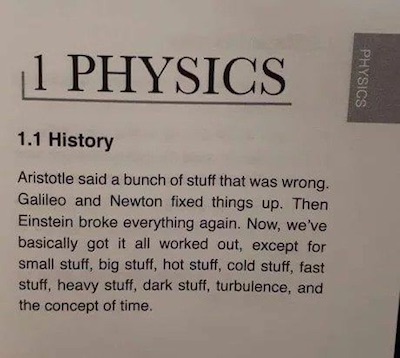

Drunk test
https://twitter.com/i/status/1744442214363672606

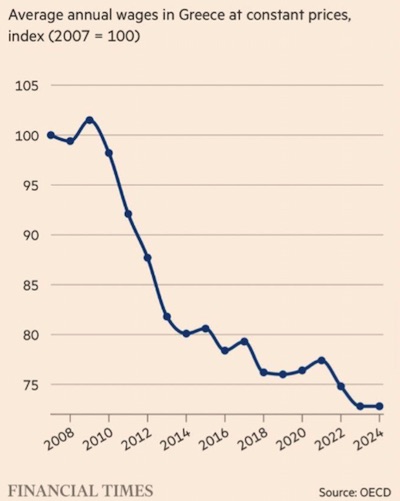
Real annual wages in Greece are, on average, still more than 25% lower than in 2007. Meanwhile, some are continuing to frame the Greek experience over the past 10+years as a miracle success of adjustment. If this is what success looks like…

Dementia restaurant
A unique concept, what do you think?
pic.twitter.com/dTI6qlsSuG— Science girl (@gunsnrosesgirl3) January 9, 2024


Support the Automatic Earth in wartime with Paypal, Bitcoin and Patreon.






